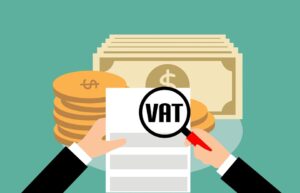VAT On loyalty schemes.
What are loyalty schemes?
There is a great deal of various loyalty schemes created to raise turnover and also preserve customer loyalty. They do this by linking buys from a business to an incentive, or reduction in price on further purchases. These schemes are used by retail outlets to encourage continued customer loyalty.
In many cases the incentive is offered by the initial provider while in other instances they are obtained from a third party that is contracted to supply the rewards. Much more intricate loyalty schemes may include a promotional business running the points plan.. Each phase of the system requires to be examined thoroughly to confirm the right VAT treatment..
loyalty schemes may include a promotional business running the points plan.. Each phase of the system requires to be examined thoroughly to confirm the right VAT treatment..
HMRC’s setting
Payments made by a business to a third-party reward supplier typically represent what HMRC calls ‘third party factor to consider’ for products made by the reward vendor to the collector. HMRC claimed any type of VAT charged by the incentive provider cannot be redeemed as input tax by the paying business as the supply is to the consumer.
A ruling that the drivers of the popular Nectar factors loyalty program were qualified to offset VAT versus their expenses was excellent information for numerous businesses which pay for the supply of goods or solutions yet are not the evident buyer.
In a 2013 Supreme Court instance – HMRC v Aimia Union Loyalty UK Ltd (previously Loyalty Management UK Ltd (LMUK)) [2013] Since the stores had supplied goods and also solutions to consumers that retrieved their Nectar factors and not to Aimia, UKSC 15 HMRC said that Aimia might not recoup the input tax. The payments made by Aimia were third party consideration for those materials. Aimia suggested that, adhering to the concept in the Redrow instance, there were two materials made by the stores. There was a supply of the goods or solutions to the consumer redeeming the factors yet likewise a supply of redemption services to Aimia.
party consideration for those materials. Aimia suggested that, adhering to the concept in the Redrow instance, there were two materials made by the stores. There was a supply of the goods or solutions to the consumer redeeming the factors yet likewise a supply of redemption services to Aimia.
Nectar points are collected when consumers patronize companion business, most especially supermarket chain Sainsbury’s. When collected, factors can be redeemed for a variety of services and also products, either in whole or partially. As operator of the system, Aimia paid the business using incentives a ‘service fee’ at an agreed value per factor redeemed. Those companies billed VAT on this service fee, which Aimia wanted to recover as input tax.
The UK Supreme Court ruled that Aimia needs to be entitled to claim input tax against VAT on service charges payable to services that redeem loyalty card points, in a split choice that rejected a preliminary judgment by the European Court of Justice. This means that in future the firms running the loyalty schemes can recover the input tax they are billed on services charges paid to the ‘benefit suppliers’.
What concerning the ‘reward providers’ VAT?
The reward provider needs to account for VAT on solutions and products provided to the customer in the common way. The value will usually be the overall of anything in the method of repayment obtained from the collection agency, plus any type of factor to consider obtained from the enroller distributor, producer, or promoter of the plan.
Practical pointer
If a business organises a loyalty plan for services it will currently be able to reclaim the VAT on any kind of service costs made by the incentive vendors.
.
Written Article By: Salford Tax Specialists Ltd
www.accountantssalford.co.uk

